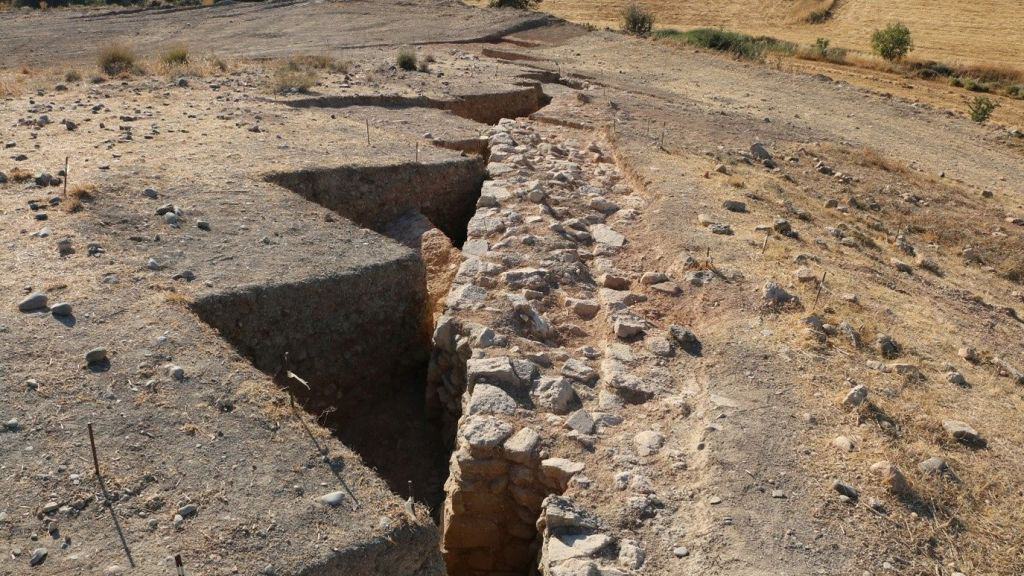An enormous fortress wall has been discovered hidden underneath an ancient burial mound from over two thousand years ago a rampart, or part of a defensive wall, according to a statement from the Department of Antiquities Cyprus.

The mound itself measures 328 feet long by 196 feet wide, and is thought to have been constructed in the third century B.C.E., during the era of Alexander the Great.
The soil had been transported from elsewhere on Cyprus for the construction of the tumulus. The Laona fortress was, therefore, well preserved under the tumulus; its northeast corner survives to a height of 20 feet (6 m), making it one of the most significant monuments of the “Age of the Cypriot Kingdoms”,
The archaeologists don’t know who built the mound, however.
“The tumulus was constructed with local soils and sediments, but since there are no tumulus builders recorded from ancient Cyprus, the engineers with the required expertise must have been non-Cypriots, maybe Macedonians,” Giorgos Papantoniou, an assistant professor of ancient visual and material culture at Trinity College Dublin, who was not involved in the excavation, told LiveScience.

Further excavation of parts of the rampart — such as the northern staircase — has been halted for now due to safety concerns.
Moving forward, the Laona project will focus on the tumulus. The enormous burial mound’s construction would have required a huge and experienced workforce led by expert engineers, the researchers said. Further research at Laona will try to prove that it is a burial mound and attempt to identify who was behind its construction.
Related posts:
Views: 0
 RSS Feed
RSS Feed

















 September 4th, 2022
September 4th, 2022  Awake Goy
Awake Goy  Posted in
Posted in  Tags:
Tags: 
















